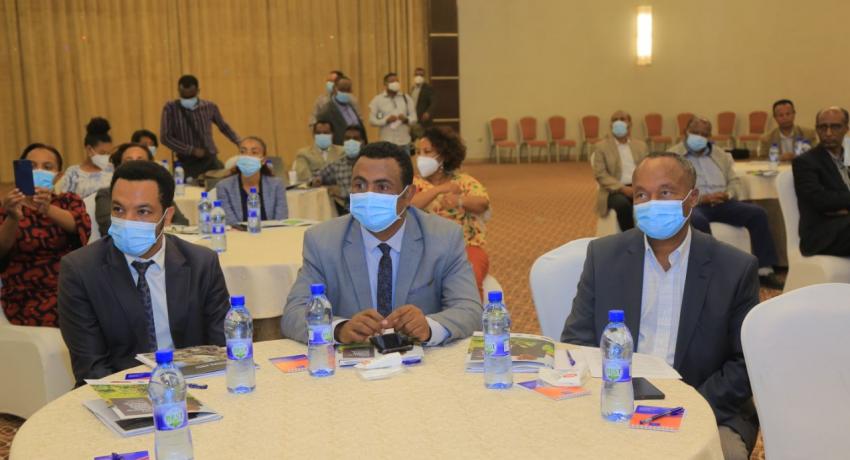The Food Security Index was launched in Ethiopia under the theme "Working in partnership to improve food supply in conflict areas".
State Minister of Health, Dr. Dereje Duguma, pointed out that malnutrition is a serious problem that needs to be addressed. In his opening remarks on the 2021 GHI process, Dr. Dereje noted that the Ethiopian government is implementing various policies and strategies to ensure food security.
In addition to living below the poverty line, the mortality rate for children and mothers under the age of five has been declining, he said. He said the Ethiopian government has prepared the necessary documents to accelerate economic growth and prosperity and ensure food security for its citizens by formulating a 10-year economic development plan.
Dr. Dereje said that although the efforts made so far have contributed to the improvement of the food and nutrition situation of the people in all respects, the progress is not enough to achieve the national and World Health Assembly as well as sustainable development goals.
"We recognize that food security is a citizen's right. We are working with partners to ensure the rights of citizens are met in a stable and even emergency situation,” said Dr. Meles Mekonen, State Minister for Agriculture and Horticulture Development Sector. He said insecurity and the need for humanitarian assistance were on the rise. In particular, the effects of climate change in eastern, southern and northern Ethiopia, conflict and internal displacement in northern Ethiopia, western and southern Ethiopia, the impact of COVID 19, inflation and budget deficit, and the recent impact of the Ukraine conflict has an impact on food security and malnutrition in Ethiopia.
According to Dr. Meseret Zelalem, Director of the Maternal and Child Health Directorate at the Ministry of Health, the Ethiopian government has prepared a roadmap for the transformation of the system that requires the participation of all stakeholders. She said changing the Ethiopian diet and making disaster-affected areas more resilient is a necessary step to ensure sustainable food and nutrition security. In this regard, she said, the Ministry of Health and the Ministry of Agriculture, in collaboration with partners, are working on a 22-cluster solution to change the food system. She recalled that the Ethiopian government had promised to make changes to its food production at the 2021 UN Food Summit in New York.
According to the report, Ethiopia is ranked 90th out of 116 countries in the four basic GHI indicators. These include malnutrition, infant malnutrition and infant mortality. Dr. Dereje said it is a shocking figure that requires the intervention of all stakeholders. In this regard, Dr. Dereje added that the 2021 GHI report and the brief report on Ethiopia will provide an opportunity for all stakeholders to come together, reflect on the current situation, and make practical recommendations.
The theme of the event, which encourages working together to improve the Ethiopian food system, focuses on the discussion of the Ethiopian Food Program, which brings together more than 120 stakeholders including government departments, private sector corporations, universities and research institutes, civic associations and multilateral and bilateral experience.

